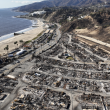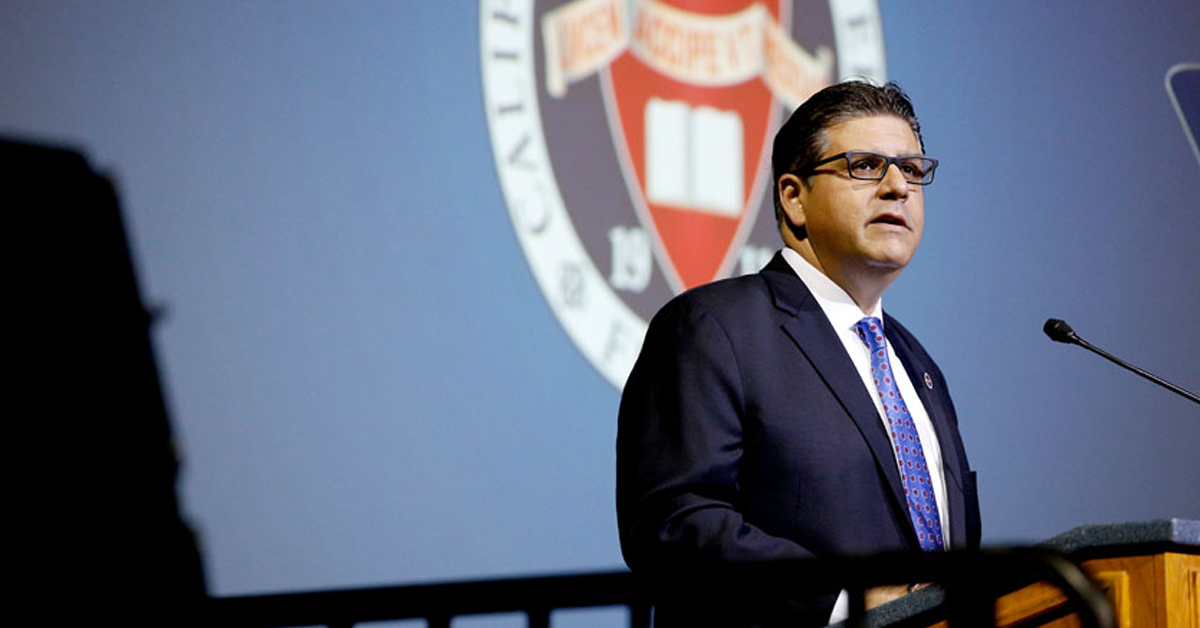Despite significant opposition from local political and business leaders, California Gov. Gavin Newsom has signed a controversial bill that restricts how new warehouses are built.
Newsom announced on Sunday that he signed Assembly Bill 98, which was authored by Asm. Juan Carrilo (D–Palmdale).
The big picture: AB 98 will establish a large number of building standards for new warehouses, starting in 2026.
- It also bans truck traffic from being near sensitive sites, such as homes, schools, daycare facilities, parks, nursing homes and hospitals.
- Local governments will be required to update their truck routes to avoid residential streets.
- AB 98 also mandates a new buffer zone between homes and warehouses and adds decorative walls and landscaping to buffer areas.
- The bill also requires two affordable housing homes to be built for every one that is demolished to make way for a new warehouse.
- Further, AB 98 mandates loading docks for new or expanded warehouses be 300-500 feet from property lines, depending on what the zoning is in the surrounding neighborhood.
How we got here: AB 98 was originally an agriculture bill last year, but an 11th hour gut-and-amend just hours before the Legislative year ended on Aug. 31 gave it new life.
- The bill was couched as a compromise for businesses and environmental groups, with the California Chamber of Commerce calling AB 98 a “sensible path forward” to allow businesses to operate and expand while protecting people who live and work near warehouses.
- Despite the intense new regulations, environmental groups were not all pleased with the proposal, with some saying AB 98 does not go nearly far enough to address their concerns.
Flashback: Last week several local leaders held a press conference at the Fresno Chamber of Commerce to urge Newsom to veto AB 98, with fears that the bill will curb Fresno’s economic growth.
What they’re saying: League of California Cities President Daniel Parra, the mayor of Fowler, said in a statement that AB 98 is costly and burdensome.
- “AB 98 is a massive unfunded mandate that will harm our cities, stifle job growth, and threaten the economic lifeblood of communities throughout California,” Parra said. “We are committed to finding a fix to this harmful bill in next year’s legislative session.”











